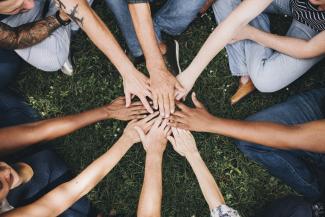
Incredible resource on the issues that people face around the world, the supportive organisations uplifting vulnerable groups, empowering movements fostering equality, and the heroes fighting for positive change. Must-have tool kit to everything on human rights, exemplary people, women, men, and youth.
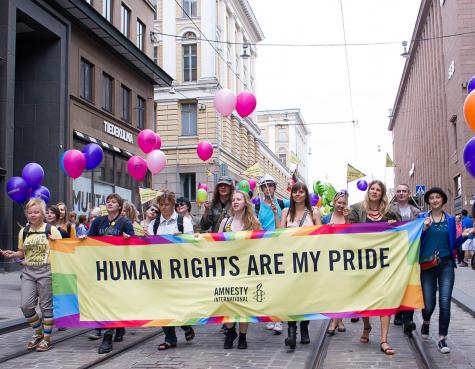
The Universal Declaration of Human Rights was adopted in 1948, for the first-time human rights became legally protected. It states that these rights are inherent, regardless of race, gender, nationality, ethnicity, language, beliefs, or any other factor. Freedom without discrimination.
Despite this universal protection, 40 million children suffer from abuse and neglect, 26 million refugees have fled their homes, governments use mass surveillance and censorship, 246 million child laborers exist, and women continue to be denied the same equal status and freedom as men.
For these reasons, and many more, there is a vital need for trustworthy and reliable human rights news. An essential tool to raise awareness of the abuses and violations that still exist. Human rights organisations and defenders work tirelessly to promote the upholding of rights worldwide, and provide much needed aid and legal support. Their work is often at risk to their own lives.
Strong human rights mechanisms and laws are needed to support their work. As well as protections for the human rights defenders themselves. Human rights education pools together resources to inform citizens of their rights, gathers vital statistics, and creates the foundation of laws and protections that are so desperately needed.
Browse human rights issues by topic, and uncover essential information on refugees and migrants, children's rights, press freedom, indigenous struggles, human trafficking, and so much more.
Alternatively, search human rights by country, where we expose the truth of the rights situations worldwide. Whether it be abuses by governments, gangs, terrorists, the military, immigration systems, or suppressive laws and cultural norms. Your window into global human rights starts here.
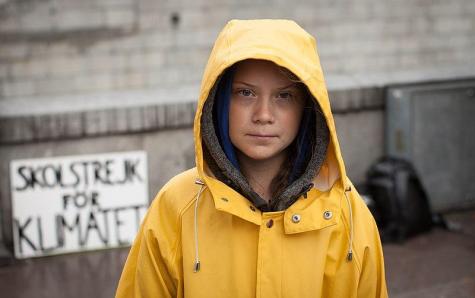
In a world which can seem dark, it is important to give recognition and gratitude to those who bring light to it. Those heroes and heroines who are exposing the truth, empowering and uplifting others, giving a voice to the voiceless, using the law to provide justice and protection, and finding practical solutions to the world's greatest problems. We call them exemplary people.
Peace advocates, anti-war protesters, non-violent activists, and peace educators such as Gandhi, the Dalai Lama, Martin Luther King, and Nelson Mandela have shared their ideologies to create a world where peaceful resolutions are sought before war, conflict, and autocracy. Their commitment to peace has made our world a safer one.
Environmental defenders put their own lives at risk to fight against giant mining companies, Big Oil, Big Ag, the logging industry, and short-sighted, greedy leaders. They raise awareness for conservation, biodiversity protection, and climate change. They defend indigenous territories from land grabs. They put pressure on politicians to take action, and implement strong laws and policies to ensure that future generations have a world worth living for.
Journalists and whistle-blowers play a huge part in exposing the truth, and ensuring that important issues are recognised. Without truth, there can be no democracy. Without a free press, citizens are left uninformed. Without free speech, scientific discoveries are hidden, and citizens voices are supressed. Media censorship and the spread of misinformation creates apathy, and allows corruption, war, dictatorships, and rights abuses to spread.
Every one in five days a journalist is murdered. World Press Freedom Day highlights the importance of a free press, and the dangers faced daily by independent media.
Human rights workers, lawyers, and defenders fight for the promotion, protection, and realisation of social, cultural, and economic rights of individuals and vulnerable groups. They work to stop torture, discrimination, arbitrary arrest, detention, execution, impunity, employment issues – and much more.
They fight to enforce laws, support better governance and policy, and to implement international treaties ensuring that the rights we all deserve are respected. Human rights education is also an essential part of their work, informing citizens and those in charge of their rights and responsibilities.
Exemplary people come in all shapes and sizes - scientists, politicians, economists, educators, philanthropists, and those securing the preservation of culture and traditions. The Right Livelihood Award is committed to honouring and uplifting inspiring and courageous individuals and organisations who get to the root of some of the world's biggest problems, then solve them.
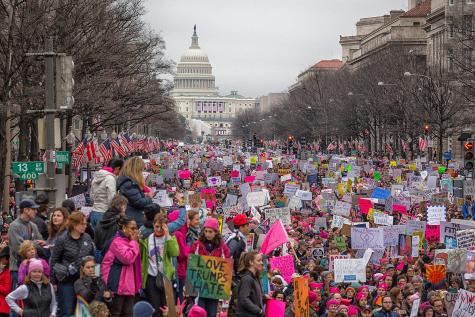
The gender equality movement has been gathering momentum for the last few years. Poor legal protection, lack of political representation, societal norms, lack of religious freedom, reduced access to education and medical care, lack of body autonomy, and lower quality employment opportunities, have all trapped women in poverty, abusive situations, poor health, and with limited opportunities for personal development.
Women account for 70% of the population living in absolute poverty. Meanwhile 60 million girls annually are forced into child marriage. Many countries still do not consider domestic violence to be a crime, even in pregnancy. Every 90 seconds a women will die during pregnancy or child birth, mostly due to poor education and access to health care. 80% of refugees and displaced people are women.
Women remain on the margins of society, massively under represented politically, within law enforcement, and in decision making and peace processes. But there is cause for hope.
Womens rights and gender equality are making headlines. Womens news sites, portals, and women's organisations are raising awareness, gathering funds, enforcing protections, and slowly changing societal norms.
Feminism embraces social and political movements reshaping traditional ideologies. It empowers women to fight for their personal, social, economic, and political rights in a male dominated society.
Important female issues such as pregnancy consultation, birth control, education, harassment, and political participation are being put at the forefront of gender equality campaigns. As well as issues surrounding women in the workplace, such as the pay gap, reduced opportunities to progress, and unpaid labour.
Days like International Womens Day on March 8th help raise the profile of these issues, and foster the spirit of a more equal society. It celebrates women's achievements, and fights against bias, discrimination, and stereotypes.
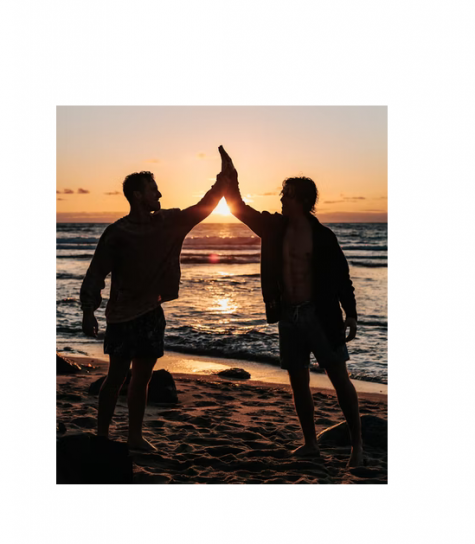
Traditionally, men are the breadwinners of society, and with that, comes the associated stress and pressure to provide. Measurements of male success has placed financial prowess above other much healthier factors, such as being a present father, or engagement in society.
With the increasing pressures of modern society, and the tendency for men to trivialise the importance of mental health, levels of male suicide is almost 4 times higher than in females.
Toxic masculinity creates harmful male stereotypes, and fosters a culture of violence. Masculinity is now being redefined. The growing popularity of male magazines is creating a community of men who are not defined by their salary and size of their biceps, but by their ability to care, communicate, express emotion, and to connect with others.
Men and violence have unfortunately gone hand in hand for generations. Not only are men more likely to be victims of violent crime than women, but they are also taught that expressing frustration through violence is acceptable. Men can feel that violent behaviour makes them worthy, or manly.
Domestic violence and sexual assaults among men are huge issues which have long been ignored. Embarrassment, feelings of weakness, and lack of support from law enforcement has led to a culture of silence among victims.
Regarding homosexuality and gay rights, 11 countries remain whereby the death penalty is the punishment for same sex relations. Many jurisdictions specifically criminalise sex between men. Much work still needs to be done to eliminate discrimination, and verbal and physical hate crimes towards the gay community.
Huge stigmas exist surrounding male health care. Men remain reluctant to visit professionals for regular check-ups, and continue to ignore the signs of stress, poor lifestyles, diet, and excessive alcohol consumption.
Fortunately, the men’s rights movement is growing. It highlights many issues, and brings together excellent organisations offering support, community, and self-help.
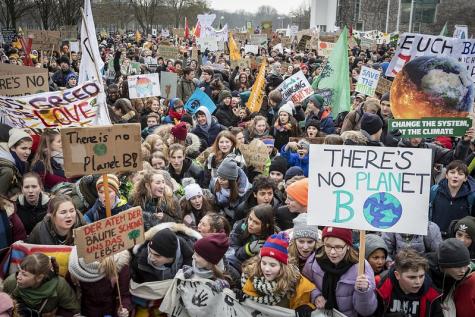
Children and young people are the adults of the future, they will become world leaders, decision makers, ambassadors for human rights and our planet. They will face the toughest challenges yet regarding climate change, refugees, global health, armed conflict, and shrinking social welfare. Yet, they are the most vulnerable, and often the first to suffer in a crisis. Children depend on us to uphold their rights and protections.
The voices of teenagers and young adults are particularly important. Youths should be actively involved in the political process. Young people are struggling with unemployment, a changing climate, mental health issues, and the pressures of a digital society. We must empower them, encourage youth activism, and involve them in the decisions that will affect their futures.
Younger children are the first to lose in family disintegration, poverty, conflict regions, and suffer the most from poor nutrition and lack of access to sanitation. Defending children's rights is paramount. We must fight for a world where education is available to all, where food and safe drinking water is not a privilege, and where a child can reach their full potential regardless of place of birth, or any other factor.
Girls tend to be the most vulnerable, and are faced with obstacles since birth based on their gender alone. Girls' empowerment, sexual education, and the changing of harmful traditions are vital to the creation of a world where 50% of the world's population is not discriminated against.
In developing countries, almost a quarter of young women today did not complete primary school. Two-thirds of the worlds illiterate population are female. Girls are being denied access to education, reducing their chances of employment dramatically. It widens the pay gap, and devastatingly, creates a culture of young pregnancy and child marriage.
Boys generally have a greater chance of completing formal education, and face less barriers, but they too endure their own set of issues.
Bullying, peer pressure, and harmful stereotypes, can lead boys to develop issues around anger, violence, and poor behaviour towards their counter sex. We must raise boys to be kind, happy, and well-balanced men. Society must promote positive masculinity, and end the ‘boys will be boys’ culture.
Activities such as Scouts can reinforce skills such as teamwork, communication, stress relief, and improves mental wellbeing. It helps connect children with nature, and teaches them about ecosystems and the importance of environmental protection.
Youth volunteering is also an excellent way for young people to engage with local communities. They can help with the causes that they really care about. They can learn how to solve social problems, and about the importance of decision making at community level. It may even open the door for gap years abroad, and traveling - possibilities which young people may not have thought were open for them.
Young people should know that there is support and help out there. There are countless organisations working tirelessly to offer advice, shelter, educational assistance, emotional support, and protection to those who need it.
Children can find themselves in helpless situations. International development issues exist globally. Early childhood development is vitally important, yet approximately 100 million children live on the street. They face daily threats of violence, starvation, gang recruitment, and abuse.
Child soldiers, some as young as 10, are forcibly recruited all over the world. It breaks several human rights laws, destroys lives, families, and causes untold damage to children emotionally and physically. Other issues such as trafficking and child labour are similarly destructive, and in need of serious global attention.
Organisations, charities, proper governance, and the backing of strong child protection laws all help. Children everywhere deserve dignity, safety, and love.
.
Article by Rachael Mellor
PEOPLE by Rachael Mellor is licensed under CC BY-NC-ND 4.0
.
Image 1: “Untitled” from Piqsels is licensed under CC BY 4.0
Image 2: “Human rights are my pride” by Amnesty Finland is licensed under CC BY 2.0
Image 3: “Greta Thunberg 7” by Anders Hellberg is licensed under CC BY 4.0
Image 4: “Women’s march on Washington” by Mobilus in Mobili is licensed under CC BY-SA 2.0
Image 5: “Untitled” by Tyler Nix is published under the Unsplash license
Image 6: “Fridays for Future 25.01.2018 Berlin” by Fridays For Future Deutschland is licensed under CC BY 2.0